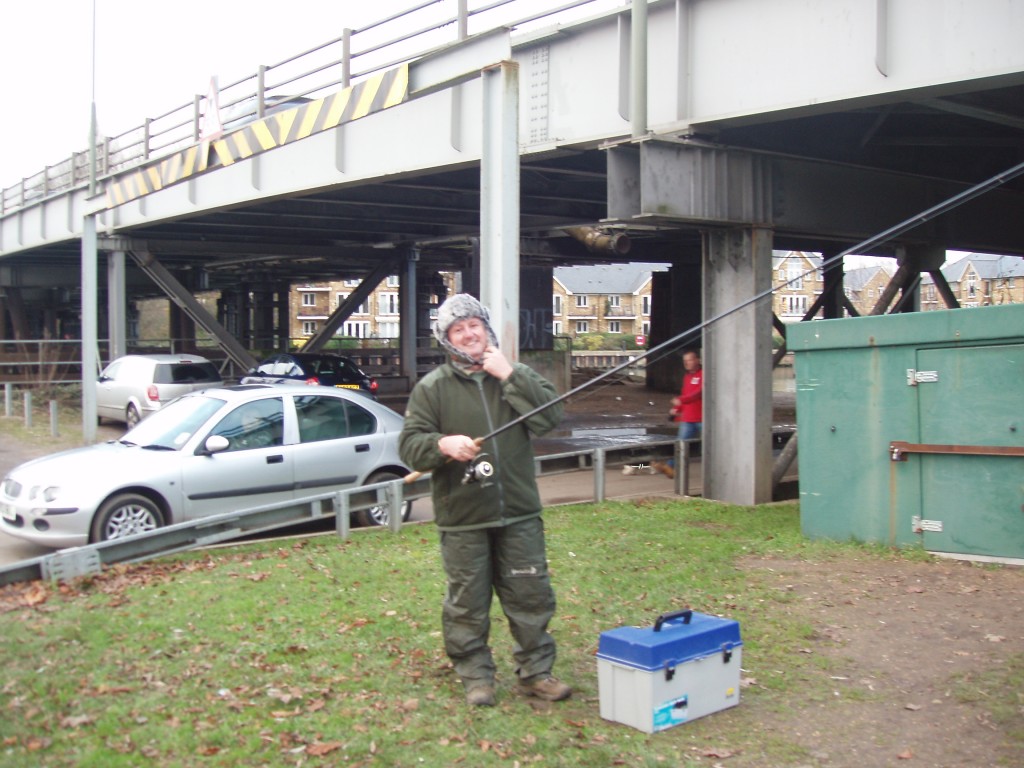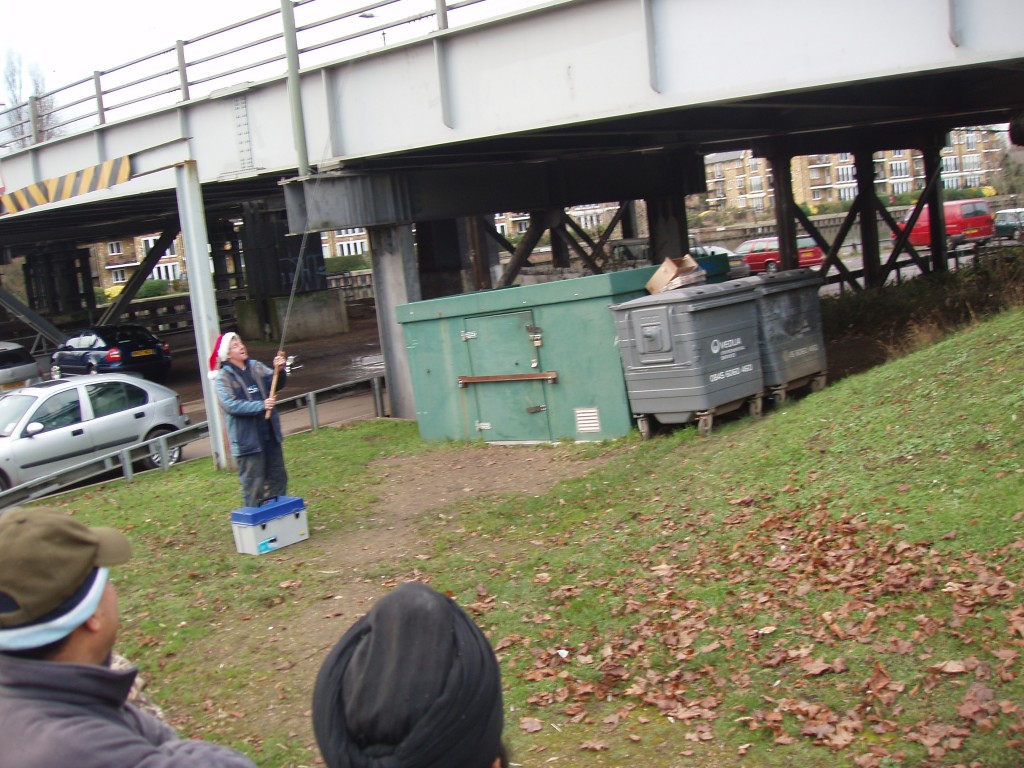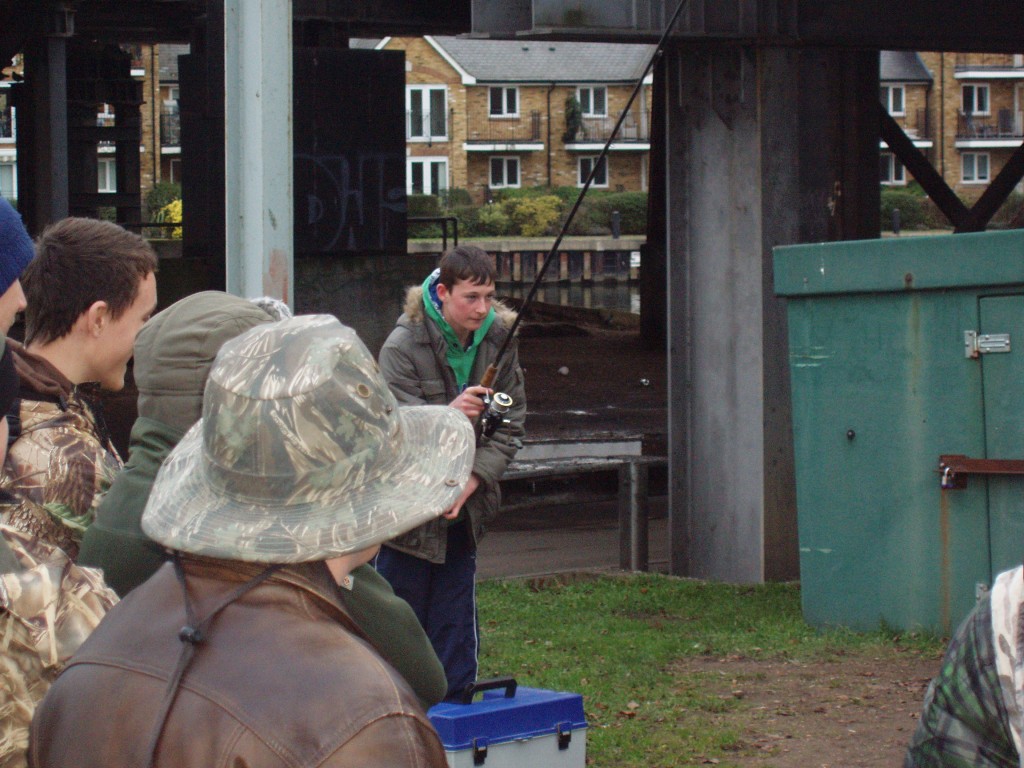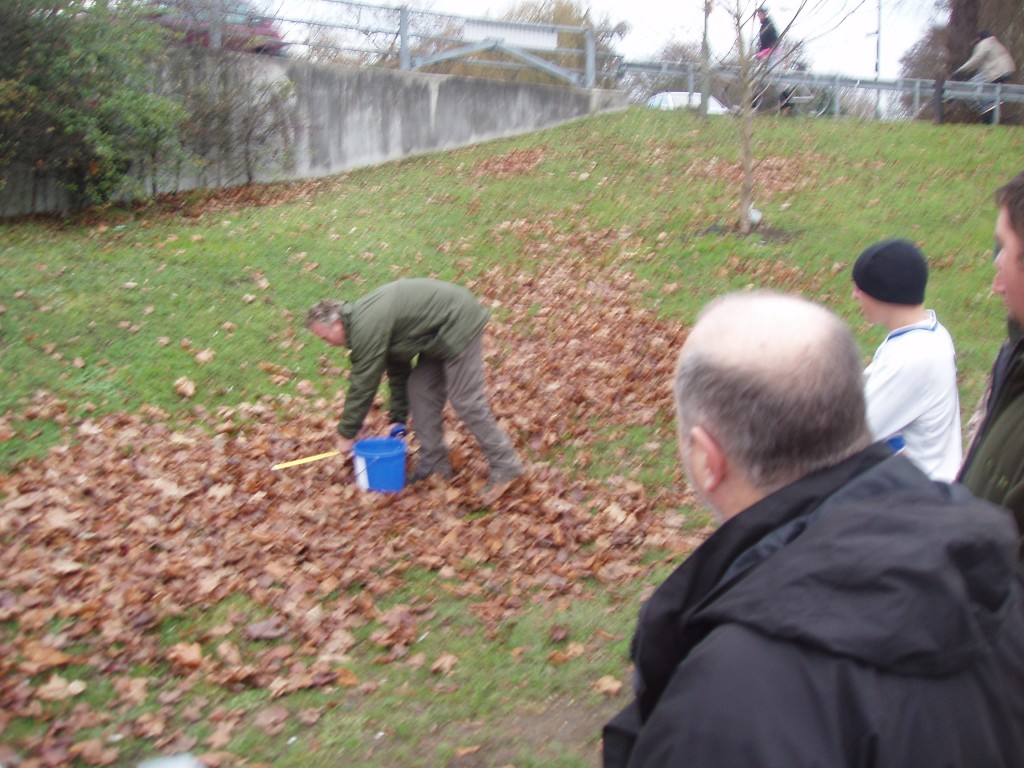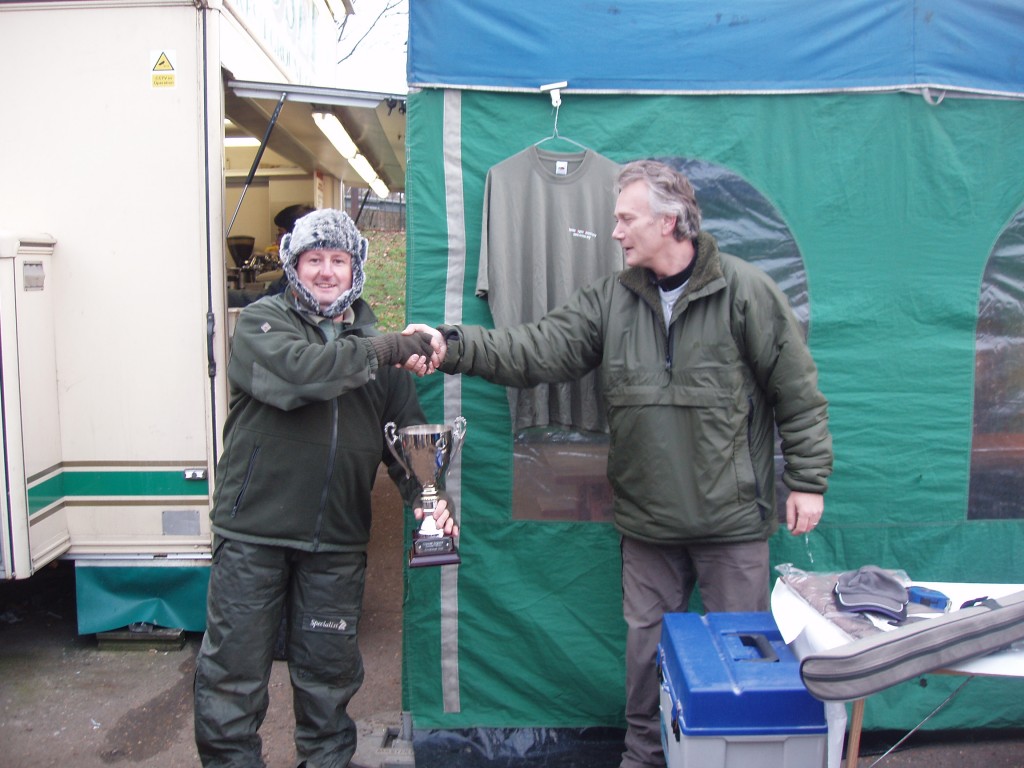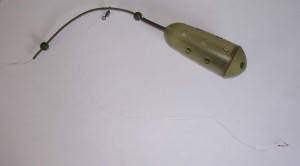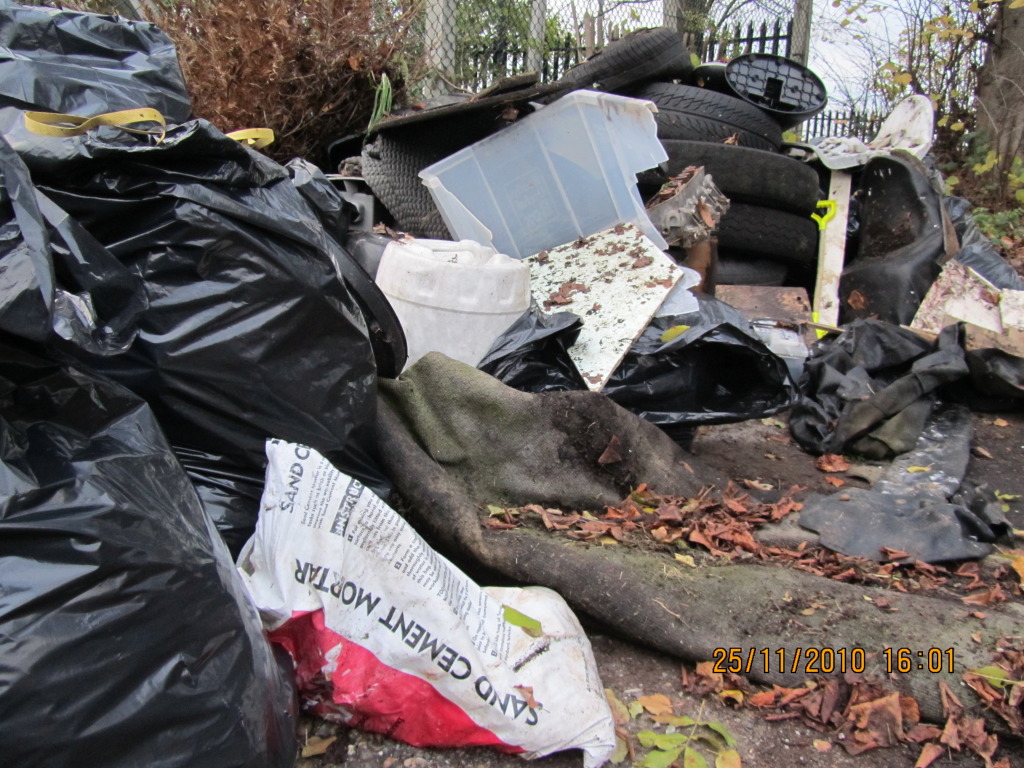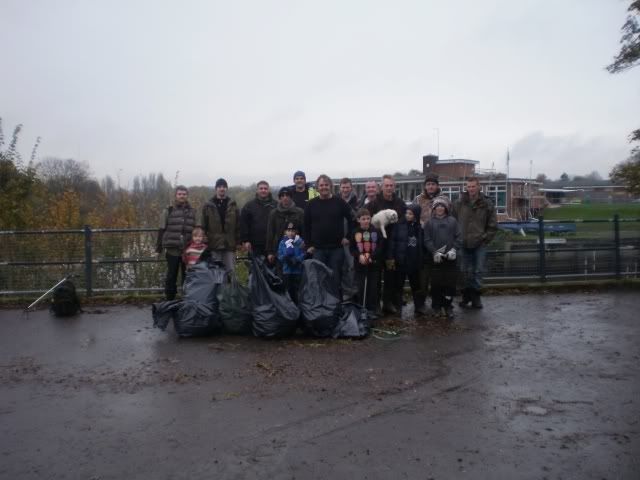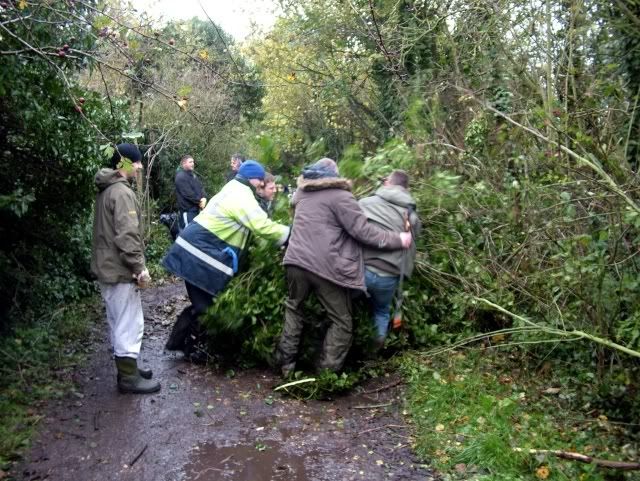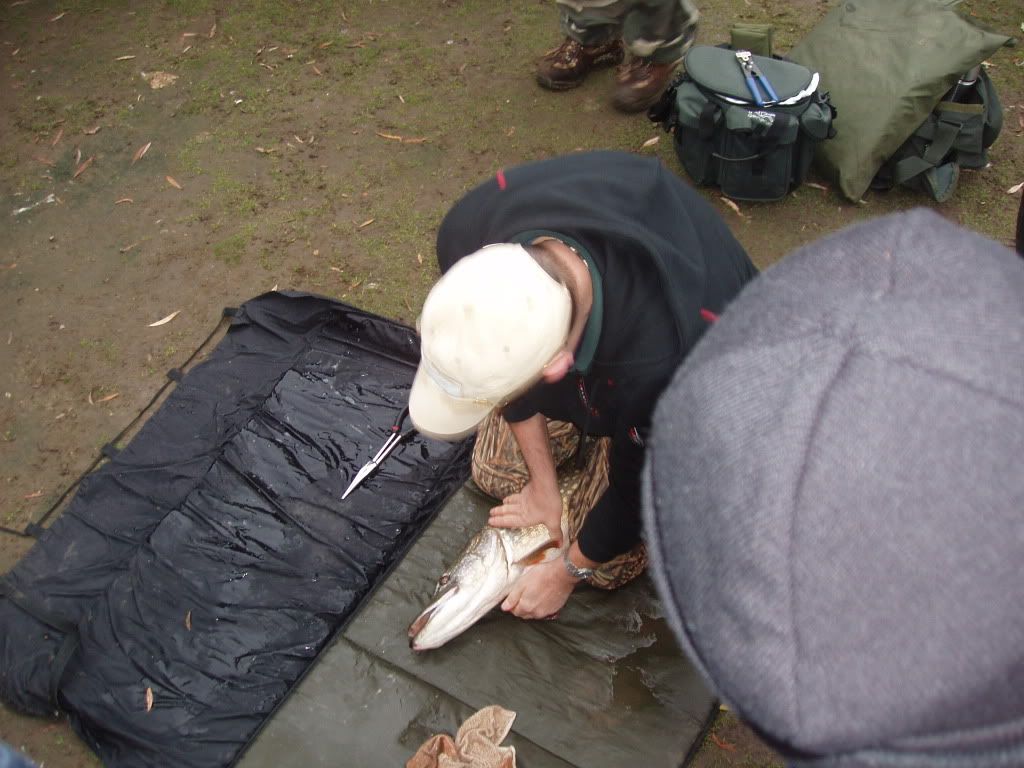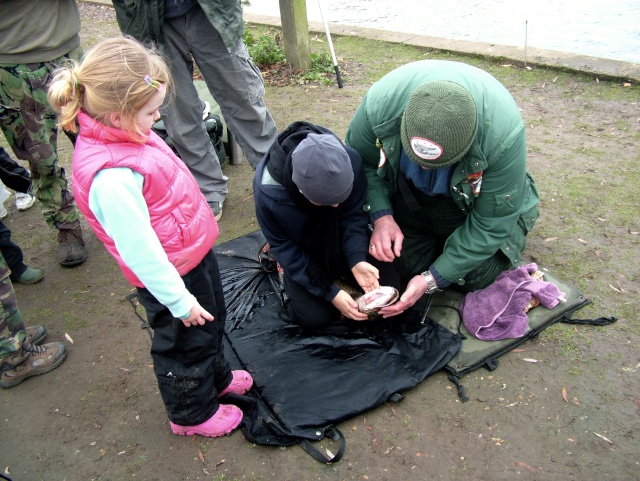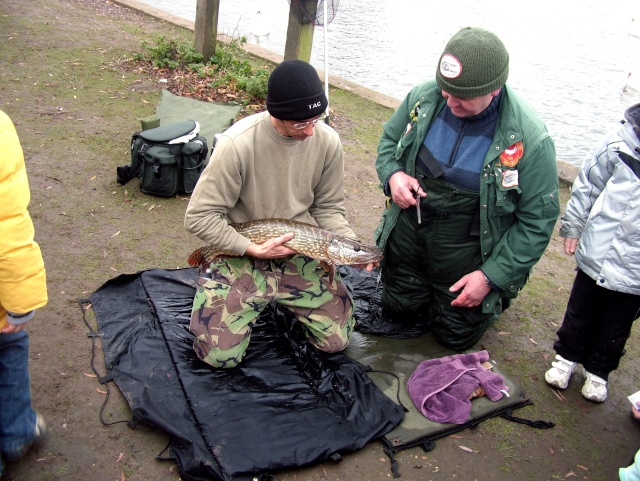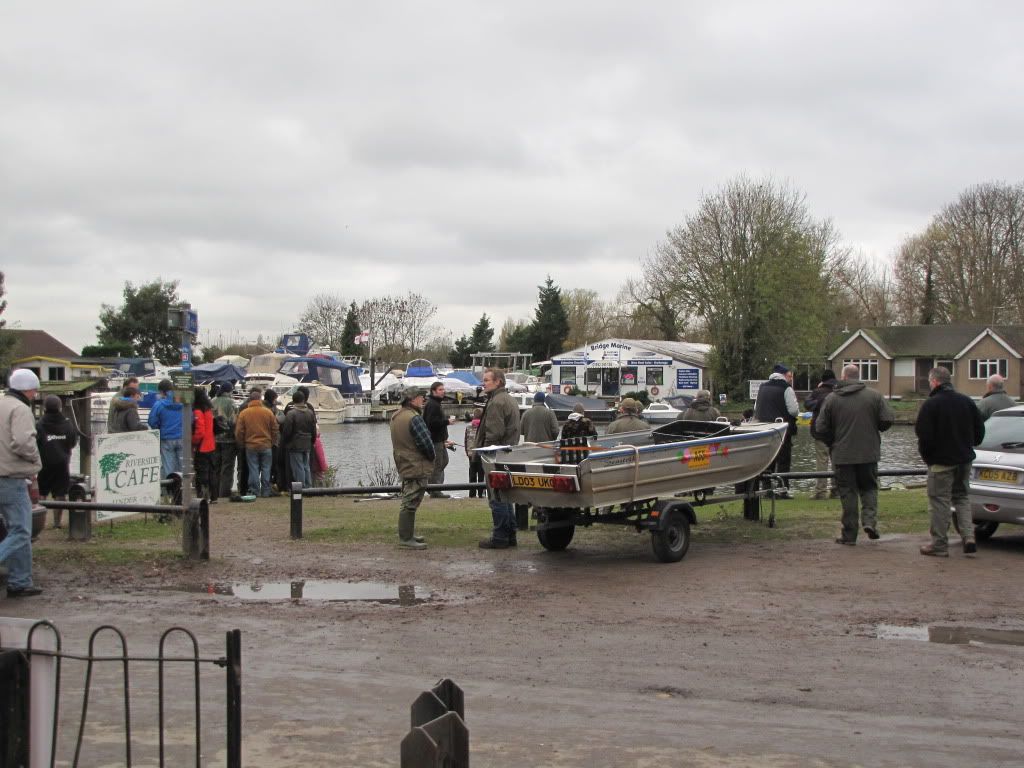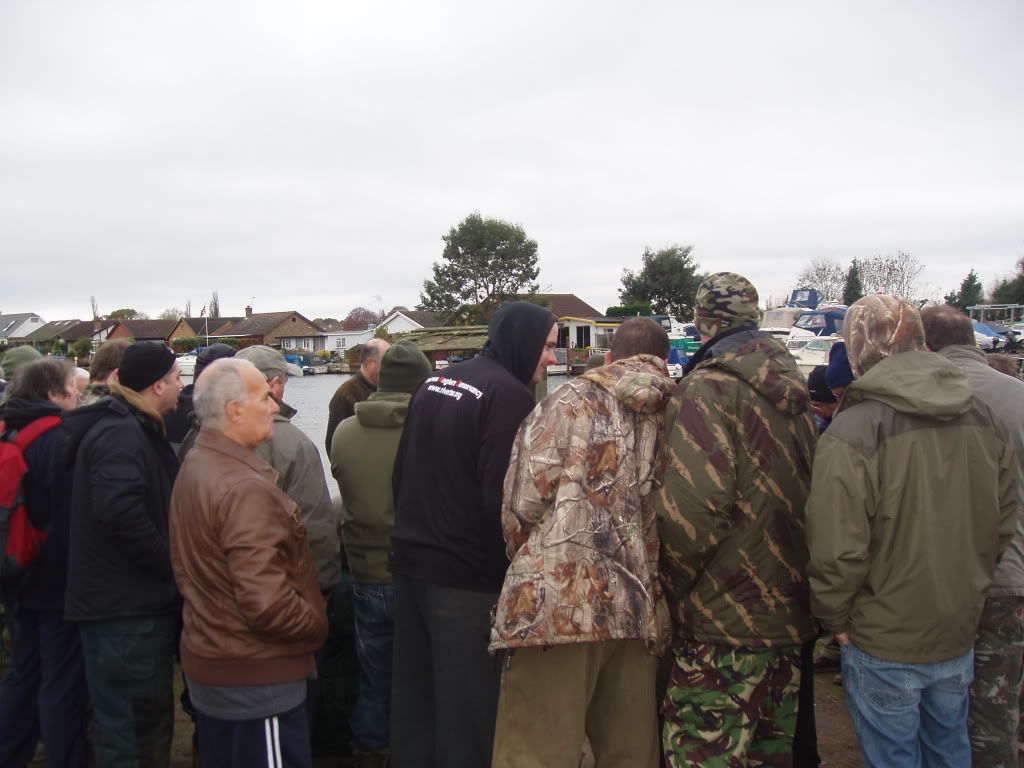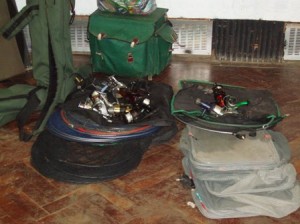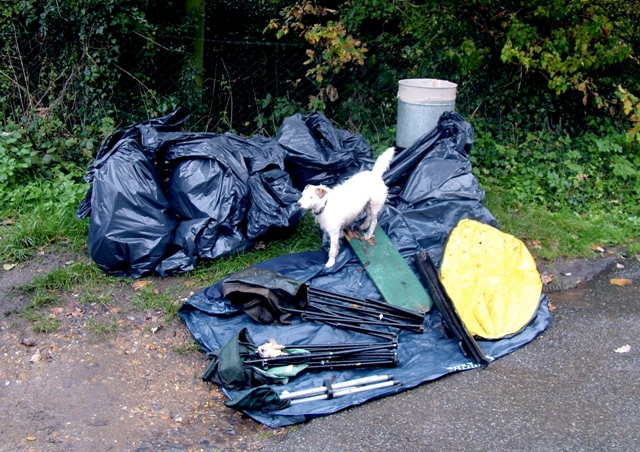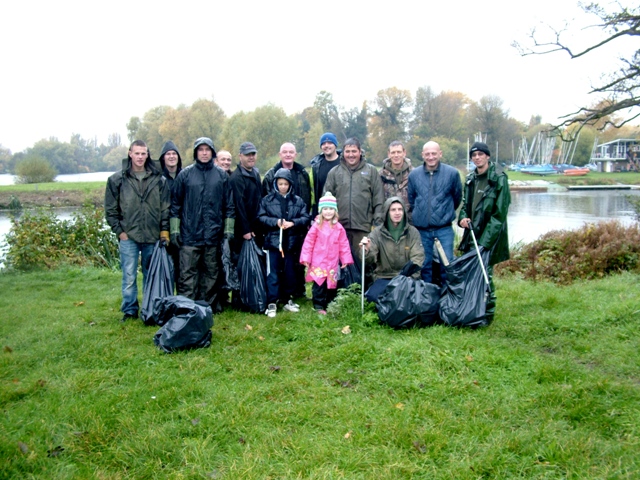-
- Buy a UK rod licence: EA Link
- 0800 807060 EA Hotline, Pollution, Poaching
- Thames Region River Levels
- Thames River Conditions
- Thames Temps and Clarity
- Thames Fishing Byelaws
- Thames Annual Tidefest
- Thames Record List
- Thames Eel Monitoring
- EA Annual Fisheries Report
- EA Flood Warnings
- Thames Sewage Discharge Notifications
- Thames Sewage Events
- Thames Tideway Tunnel
- River Thames Scheme: Reducing flood risk from Datchet to Teddington
- Martin Salter: Fighting for Fishing Blog
- Duncan Charmans World of Angling Blog
- Angling Trust
- Water and sewerage companies in England: environmental performance report 2013 – 2016
- EA Pollution incidents: 2014 evidence summary
- EA Pollution incidents: 2015 evidence summary
- River Crane and DNR Fisheries Impact assessment
- Links
Recent Tweets
Error retrieving tweetsNews Archive
‘Rigs n Tips’ Junior tuition day
Junior members of the TAC attended a local youth club along with the resident fishing group for ‘Rigs n Tips’ day.
Juniors were shown many aspects of how terminal tackle should be presented and how to best to put all the component parts together. Along with this there was a piking tips and a lure angling demonstation which was enjoyed by everyone.
To cap off a brilliant day the TAC held a casting competition where anglers were given the chance to win some new terminal tackle. They taught the older members just how easy it can be to cast into a bucket!
Special thanks must go to the juniors who made the effort to get along despite the weather and to Walton Tackle Exchange and Fishing Unlimited for the kind donatations along with Keith Arthur’s generous donation. Also to Andy Mackie from Surbiton Angling and Jeff Kennet from Teddington Lock for coming along and passing on many years of knowledge.
Finally thanks to Ben Skelton of Ham and Petersham youth club for inviting the TAC down for the event.
Posted in News
Comments Off on ‘Rigs n Tips’ Junior tuition day
Water companies may hide their dirty secrets rules information tribunial
Water companies have always been reluctant to supply anglers with information about pollution – but a Tribunal which deals with appeals on information issues has now concluded that water and sewage companies in England and Wales are not covered by laws on freedom of information.This is a huge blow to the Angling Trust's campaigns and legal action to make water companies accountable for the damage they cause routinely to fisheries up and down the country.
The decision means that water companies will not be compelled to reveal when, where and how often they pollute our rivers, lakes and coastal waters. Instead anglers will have to rely on the good-will of these profit-driven utilities to expose their activities voluntarily.
The decision comes at a time when the Environment Agency (EA) is depending on the water companies to monitor their own discharges into streams, lakes, rivers and coastal waters through the new policy of 'Operator Self Monitoring'. This means that even the Government's regulator may not know much about what these companies are getting up to. This particularly concerns the Angling Trust's legal arm, Fish Legal, as its lawyers currently need access to this information to fight numerous legal cases arising from sewage pollution incidents on behalf of Fish Legal members which the EA has not properly investigated.
The Tribunal's decision agreed with the view of the Information Commissioner that the water companies are not "public authorities" for the purposes of the Environmental Information Regulations 2004 (EIRs). Several organisations had appealed the decision of the Information Commissioner, including Fish Legal, which in 2009 had asked for data from United Utilities and Yorkshire Water on the performance of their combined sewage overflows (CSOs) which allow faeces, urine and washing detergents to pass untreated into fisheries when treatment works and sewers are overwhelmed by rain. The water companies argued that they were not covered by the EIRs as they regarded themselves as commercial companies only. Fish Legal's case was then put on hold pending the outcome of a lead case brought by SmartSource to settle the legal issues – which were then decided in the water companies' favour. Fish Legal is now looking at its legal options. Its lawyers have already written to the Aarhus Compliance Committee in Geneva and to DEFRA urging them to intervene following the ruling and to direct the Information Commissioner to agree that water companies are covered by the provisions of the international Aarhus Convention on Access to Environmental information, to which the UK is a signatory.
Explaining the significance of the ruling, Mark Lloyd, Chief Executive of the Angling Trust and Fish Legal, said: "Our lawyers have been trying to force several of the water companies to reveal just how much sewage they spew into rivers and coastal waters through combined sewage overflows (CSOs), which are used when the sewers get overloaded. I think we anglers – and everyone else with an interest in clean water – need to ask why these companies are so desperate to keep their dirty secrets hidden away from public scrutiny. Given the scale of their activities, which affect everyone who uses the water environment and drinks from a tap, I think the public should have the right to freedom of information about what they get up to. Thanks to the support of our members, we will continue to fight for this right."
Posted in News
Tagged Angling Trust, Environment Agency, Pollution, Sewage, Thames Water
Comments Off on Water companies may hide their dirty secrets rules information tribunial
Hydropower – Enough is Enough say Fisheries Bodies
Angling Trust Media Release Friday 10 December 2010 Immediate Release Hydropower – Enough is Enough say Fisheries Bodies The Angling Trust, Atlantic Salmon Trust, Afonydd Cymru, Association of Rivers Trusts, Salmon & Trout Association and Wild Trout Trust have today written a joint letter to Paul Leinster CBE, Chief Executive of the Environment Agency (EA) to express their frustration at the way his organisation has failed to take account of the protection of fish and rivers in its approach to hydropower. After more than a year of campaigning for equal involvement in the Agency's discussions with the British Hydropower Association (BHA), angling and fisheries interests were finally granted this opportunity. They provided detailed verbal and written comments on ways in which the Agency's so-called Good Practice Guidelines should be improved to ensure that new schemes have no adverse impact on fish and flows. Once again, these comments have been largely ignored in the latest draft of the guidelines. In frustration, the angling and fishery representatives have withdrawn from a scheduled meeting with the Agency and the BHA. Instead they have written to the EA Chief Executive requesting an urgent meeting at a senior level to bring about a change of policy. Their letter, which is reproduced in full below, has been copied to the EA's Chairman, Lord Chris Smith, the Fisheries Minister Richard Benyon MP and Energy Minister Greg Barker MP. The EA has a statutory duty to maintain, improve and develop fisheries and to meet the demanding standards of the Water Framework Directive – standards which are being failed for many rivers because of poor fish populations. Hundreds of applications for low-head hydropower have been submitted in the past year and the EA is actively promoting the opportunity for thousands more. Anglers' representatives and fisheries charities are extremely concerned that these developments will damage fish populations, many of which are already in peril from diffuse pollution and over-abstraction. Hydropower turbines have been demonstrated to injure and kill fish passing through them and the developments often cause long stretches of river to suffer from reduced flows. The weirs needed for hydropower schemes can block fish migration; this is a problem for many species, but is particularly serious for those that migrate to and from the sea, such as salmon, sea trout and eels. Some single river systems have hundreds of potential schemes being mooted, and the NGOs are calling on the EA to consider their cumulative impact. Mark Lloyd, Chief Executive of the Angling Trust said: " We have spent months and months providing information and detailed advice to the Environment Agency about this issue and we cannot identify any evidence that our input has been treated seriously. We are certainly not opposed to hydropower in principle, but healthy rivers are vital to biodiversity and anglers collectively own and lease several billion pounds worth of fishing rights on them. These invaluable assets need to be protected and we are demanding in the strongest possible terms that the concerns of anglers and fisheries charities are taken seriously. There are a small number of opportunities nationally where hydropower turbines could be installed sustainably, and they would have local benefits especially if accompanied by steps to improve fish migration, but in general they cause far more harm to the aquatic environment than they benefit the atmosphere." Paul Leinster CBE Environment Agency Waterside Drive, Aztec West, Bristol BS32 4UD Friday, 10 December 2010 CC: Lord Smith of Finsbury, Richard Benyon MP, Greg Barker MP, John Aldrick, Mat Crocker Dear Paul, Hydropower We are writing jointly to you to express our continuing concern at the Agency's approach to hydropower. We are not opposed to hydropower in principle – indeed we see opportunities for joint hydropower and fisheries improvement schemes on existing structures to overcome current fisheries problems – so-called win/wins. We have expressed our concern both in writing and at meetings with your senior staff on many occasions, with little effect. It may help if we summarise our key concerns as follows: Consultation Process Consultation over the development of Agency policy and practice as set out in the Good Practice Guidelines has favoured the hydropower industry to the disadvantage of fisheries, ecology, angling and riparian interests. This stems from the original decision to involve formally the British Hydropower Association in the development of the Guidelines but to exclude existing long-standing stakeholders in the health of our rivers and the social and economic benefits that flow from that health. In March 2009, following the first public presentation of the draft Guidelines at a South West Rivers Association seminar in January, we were promised full involvement in the development of the Guidelines. However it soon became apparent that several further iterations had been produced in consultation with the BHA without our involvement. We understand that the Agency's internal fisheries specialists were also not fully involved. We have been promised sight of the updated evidence base behind the guidelines, but this has not been provided. We have been told that Government guidance has been followed but our requests to see it have been denied. Similarly consultation on the Permitting Process has been unacceptable. This lack of proper consultation and involvement has continued to the present, with our carefully considered and presented input being largely ignored at every step. We have a complete history to support this assertion but trust that you will believe us without wasting your time seeing it. If you do wish to see it please let us know. Good Practice Guidelines We received the latest draft of the Good Practice Guidelines only two days before a planned meeting to review them. That meeting was postponed due to poor weather which has given us time to review the latest draft. It is still unacceptable to the extent that there is little point in us attending the rescheduled meeting next week with the same team that has consistently failed to take proper account of our concerns or provide the promised evidence that underpins the Guidelines. Sub-optimal fish populations are the second biggest cause of failure of waterbodies to achieve Good Ecological Status as required by the Water Framework Directive. This should be a major strategic driver of Agency policy towards protecting the aquatic environment and the fisheries it supports. Unfortunately this is not the case in the Agency's approach to hydropower. In many cases the very limited potential benefits which might accrue from hydropower are far outweighed by the potential long term damage to the aquatic environment and fisheries affected. Greater acceptance of our considered input to the Guidelines would help the Agency fulfil its statutory duties, including achievement of the WFD default position of no deterioration in ecological status and the genuine inclusion of a wider community involvement also explicit in the requirements for WFD delivery. Just one example will suffice to demonstrate this assertion. The current trend towards hydropower development, encouraged by the Agency's activities, is resulting in many proposals on single rivers. The cumulative effects of such multiple proposals are largely ignored in the Guidelines but have great potential for cumulative adverse effects. The current piecemeal approach is completely at odds with the Agency's professed catchment based approach to managing the aquatic environment. Permitting We appreciate the need for efficient and cost-effective permitting processes for all stakeholders, including the Agency which derives no income from hydropower licences. However meeting this need must not be at the expense of effective regulation nor to the jeopardy of the aquatic environment, fisheries or the property rights of riparian and fishery owners – property rights which support angling estimated by the Agency to support socially valuable activity generating £3 billion of economic activity a year. Recent experience of permitting in practice is especially alarming – again one example will suffice. The Agency has licensed two proposals on the Trent at Sawley and Gunthorpe which incorporate a de facto permitted level of fish kill, including of eels which are of special concern not just locally but internationally. Next Steps We see no point in continuing to meet or liaise with the team that has led on the development of Agency policy and practice on hydropower unless they are prepared to take a more responsible approach to the needs of the aquatic environment and fisheries. Our experience of dealing with that team over the past two years indicates that a change of approach will only come about with clear direction from above – hence this letter. We would respectfully request that you personally meet with us so that we can agree a constructive approach to our continued involvement in the development of Agency policy and practice on hydropower. If you agree to this request we will provide the detailed evidence behind this letter. In the meantime we are withdrawing from the meeting planned for 16 December. Given their direct interest in this matter we are copying this letter to the relevant Ministers, your Chairman, and relevant senior staff. We also intend to make it public. For convenience may we suggest that you respond direct to me as a single point of contact – I will ensure rapid dissemination to the other signatories. Yours sincerely, Mark Lloyd, Chief Executive, Angling Trust also on behalf of: Arlin Rickard, Executive Director, Association of Rivers Trusts; Ivor Llewelyn, Director (England and Wales), Atlantic Salmon Trust; Paul Knight, Chief Executive, Salmon and Trout Association; Huw Evans, Chairman, Afonydd Cymru
Shaun Leonard, Director, Wild Trout Trust
Posted in News
Tagged Angling Trust, Environment Agency, Hydropower, TAC
Comments Off on Hydropower – Enough is Enough say Fisheries Bodies
TAC members clear an area of Sunbury
Following a report from a local Environment Agency officer, the TAC attended an area of bankside near Sunbury on Thames. The reach has clearly be neglected for sometime so the TAC set about removing the rubbish.
The amount of rubbish was quite staggering as listed below. Further regular visits will be made to monitor the problem.
TV 5 x 5 gallon plastic drums, 3 were part filled Top half of car engine 7 car wheels with tyres Car front wing Motorbike seat Large boat battery Carpet Timber Old xmas tree
11 bin bags of litter
Thames Anglers Conservancy bin bag total up to 135
Since the 15th March 2010, the Thames Anglers Conservancy members have cleared 135 bin bags of rubbish off the free fishing sections of the Thames. We would like to sincerely thank all those who have been out, come rain or shine, and made that difference.
The latest clearance was along the tidal stretch from Ham where members collected 10 filled bags worth of rubbish. Both adults and juniors turned up and made the event very enjoyable. Thanks to you all.
And an fallen tree blocking the path
Huge success for the Free Thames Pike Handling Day
The Thames Anglers Conservancy in association with the Pike Anglers Club and the Osprey Specimen group held our first Free Thames Pike handling day at Walton.
The event proved to be a huge success and a special thanks to everyone involved in making it happen. Special thanks to the Environment Agency for all their help and great to see the patrol boat and bailifs who came down.
Thanks also to the Anglers Mail, Fisherman's Blues on Talksport radio, Radio Jackie, local tackle shops and countless others for helping us promote the event.
Between 80 – 100 people turned up over the 5-hour event, including in excess of 30 juniors, all had the opportunity to see how Thames Pike should be correctly handled. There was guidance on what tools you should carry and when to use them, fish care, rigs and much more. The juniors all received a pair of forceps which were kindly donated by Les Webber.
The EA floating cage
Pike experts showing how to handle the fish correctly
Great to see so many people there
Posted in News
Tagged Environment Agency, Thames, Tuition
Comments Off on Huge success for the Free Thames Pike Handling Day
TAC working with a local youth project
The Thames Anglers Conservancy were approached by Ben Skelton who runs the excellent Ham and Petersham Youth Club providing kids in the local area with a structure and a place to go. The link to them is here
Along with very many projects they run a fishing club and wanted advice from the TAC and during the discussions we found the tackle they had was either broken or inadequate. The club has the rights to fish the Thames Young Mariners at Ham along with an abundance of local river Thames
We made contact on their behalf with Les Webbers Angling Projects and Les kindly donated some tackle to the youth club.
We were delighted today to hand over the tackle to Ben for his project. In addition we are to run some fishing workshops for the kids to explain tackle set up, baits, techniques and fish care.
Angling development is something important to the TAC so are very pleased to have been able to assist here.
Thames Anglers’ Conservancy helps to keep a popular reach open for anglers
The Thames Anglers Conservancy has been working hard over the last 2-months to ensure that one of the popular free stretches of the lower Thames remain open for all anglers.
As reported in our news section on the 21st September, a local petition had been raised following an ongoing litter problem.



